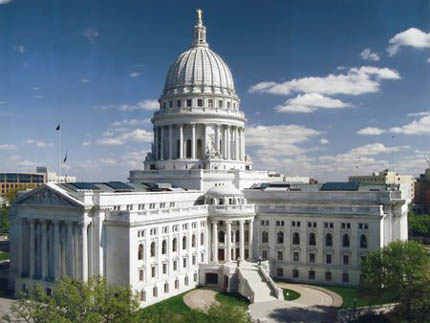Media
The Tide Against Public Sector Collective Bargaining
 Earlier this week, I blogged on state bankruptcy and how some believe budget problems can be solved if states are willing to challenge the generous contracts of state workers and school teachers. It looks like Governor Scott Walker in Wisconsin is up for the challenge.
Earlier this week, I blogged on state bankruptcy and how some believe budget problems can be solved if states are willing to challenge the generous contracts of state workers and school teachers. It looks like Governor Scott Walker in Wisconsin is up for the challenge.
It’s only appropriate that the birthplace of the modern union movement is now ground zero in the struggle to balance state budgets by limiting union’s power over taxpayers.
Gov. Walker has proposed limiting collective bargaining rights for government employees to salary only. Benefits, pension contributions, days off and the like would not be up for discussion. Teacher unions would no longer be allowed to force teachers to pay union dues and school districts would no longer deduct union dues from teacher’s paychecks.
Limiting automatic paycheck deductions for union political activity is also being considered by the governor in Alabama. And collective bargaining rights for teacher’s are being curtailed in Indiana.
The union response is typical, lots of protests and intimidation techniques generating media attention across the world. Idaho’s State Superintendent, who is supporting a similar proposal, had his tires slashed and his elderly mother was confronted by union supporters at her home.
Ohio’s new Governor John Kasich is also publicly supporting an end to public sector collective bargaining, specifically binding arbitration for fire and police workers. He claims collective bargaining is bankrupting municipalities and wants to outlaw strikes.
Could this happen in Pennsylvania?
Gov. Corbett has said he would not seek to limit collective bargaining rights, but that certain concessions will have to be made during labor contract negotiations (17 of the 19 union contracts with the Commonwealth expire this year) to reach a balanced budget.